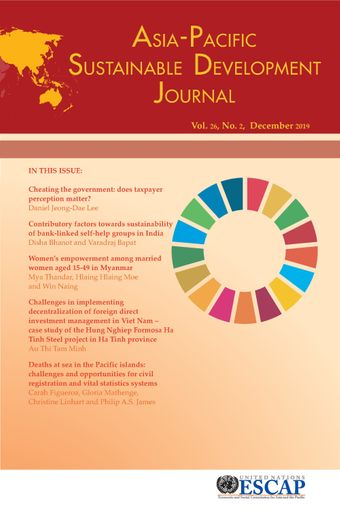-
Cheating the government: Does taxpayer perception matter?
- Source: Asia-Pacific Sustainable Development Journal, Volume 26, Issue 2, Feb 2020, p. 1 - 23
-
- 25 Feb 2020
- Previous Article
- Table of Contents
- Next Article
Abstract
Do people cheat because they can get away with it or because they feel that the rules are unfair? This paper addresses this question in the context of tax evasion. Specifically, taxpayer perception is incorporated into a widely used consumption-based method for estimating income tax evasion. Compared to the standard method, which distinguishes taxpayers only by their occupational or income type as a way of measuring their “ability” to misreport income, the refined method introduces taxpayers who may be “able but unwilling” to cheat because they feel fairly treated with respect to public services and as compared to other taxpayers. Applied to a longitudinal data for the Republic of Korea (2007–2015), the standard method yields a uniform tax evasion rate of 13 per cent, but the refined method provides a range of 7 to 25 per cent based on taxpayer perception. This implies that strategies for improving tax compliance must be tailored to different motivations for tax evasion.




